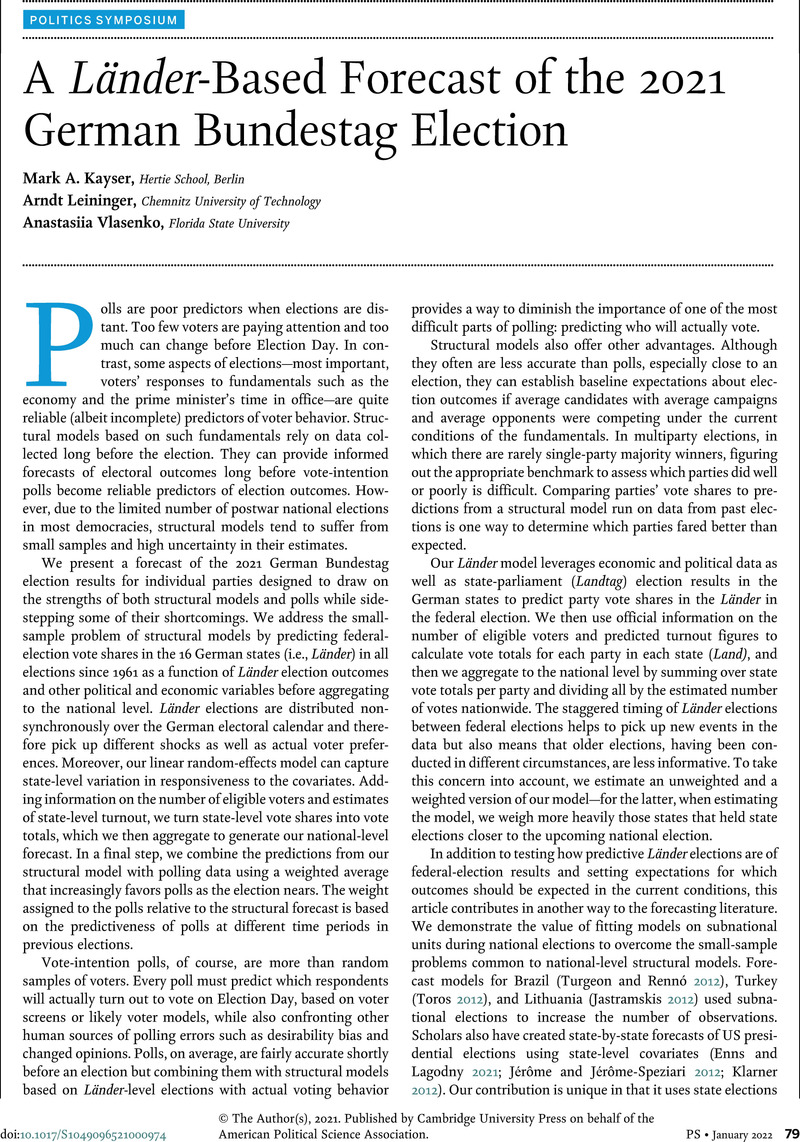Crossref Citations
This article has been cited by the following publications. This list is generated based on data provided by Crossref.
Jérôme, Bruno
and
Graefe, Andreas
2022.
Forecasting the 2021 German Federal Election: An Introduction.
PS: Political Science & Politics,
Vol. 55,
Issue. 1,
p.
61.
Graefe, Andreas
2022.
Combining Forecasts for the 2021 German Federal Election: The PollyVote.
PS: Political Science & Politics,
Vol. 55,
Issue. 1,
p.
69.
Leininger, Arndt
Murr, Andreas E.
Stoetzer, Lukas F.
and
Kayser, Mark A.
2024.
Wahlen und Wähler.
p.
383.



